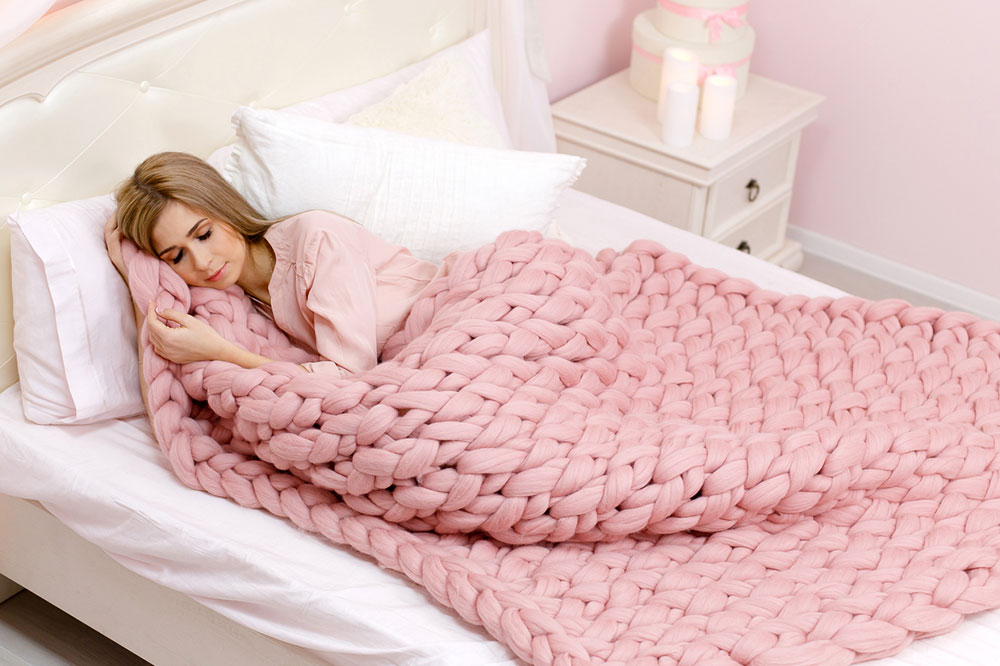
Factors to Consider When Buying a Weighted Blanket
Most people who have used a weighted blanket vouch for its effectiveness in ensuring peaceful and sound sleep. In the past few years, weighted blankets have become increasingly coveted products as people have started understanding their benefits and uses. With so many varieties available in the market, it may be difficult to select the best one. So, how to choose a weighted blanket? Here are some helpful tips and factors to keep in mind before picking one:
- Weight
Ideally, the weight of the blanket should be ten percent of the body weight for adults. When choosing one for children, keep in mind that the weight should be ten percent with an additional one or two pounds. However, this is not a rule; if your children find the weight too uncomfortable, then you can switch to a lighter version. Weighted blankets should give you a sense of calmness, and not make you feel like you’re trapped under its weight.
- Size
Weighted blankets come in different sizes. To pick the right size, go by the chin-to-feet rule, i.e., make sure that the blanket is big enough to cover an individual at least from the chin to feet. The blanket should be wide enough for a person to sleep underneath it. It is important to consider what purpose it is going to be used for. If the blanket is primarily going to be used for sleeping on a bed, then choose a big size. For travelling in a long car, bus or flight journey, choose a smaller size.
- Filler material
Weighted blankets are much thicker than average blankets, primarily because of the material they are filled with. Common fillers that are used to make these blankets include plastic pellets, glass or rice beads, and foam. The thickness of the blanket will depend on its weight. Before buying a blanket, it is important to do some research and gauge which type of filler will best suit your body, according to your sleeping pattern, pre-existing conditions, etc.
- Fabric
Flannel, fleece, cotton, satin, polyester, and velvet are just a few types of fabrics that are used in weighted blankets. Before making a final selection know what kind of a sleeper you are. If you are a cold sleeper, then flannel or fleece would be a good option for you. However if you break out in cold sweat in the middle of the night, then consider cotton blankets that are lightweight and very breathable.
- Cost
The starting price of a weighted blanket is around $100 and can go to up to $400 or more. The amount depends on the fabric and fillers that have been used; organic fillers typically cost more. The cost also depends on the size that you opt for—the smaller the blanket, the lesser the price. To lower the cost, you can look for brands that offer trial periods, discounts, and money-back guarantees. Certain medical insurance companies also cover the costs of weighted blankets.


